-
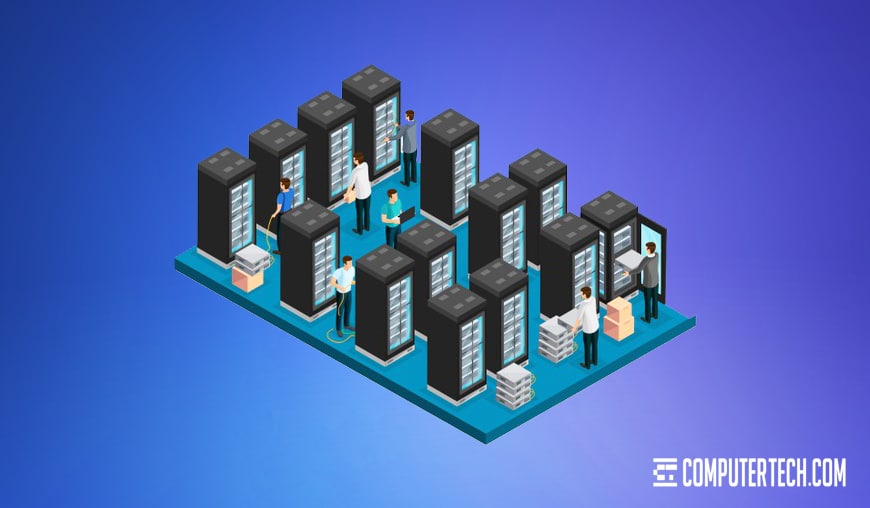
Nearly all modern businesses run on computers. Very few businesses can survive, let alone thrive, without some kind of IT infrastructure of their own. Whether it’s primarily cloud-hosted services like Microsoft 365, or just the more tech-savvy employees working on a laptop with a few key programs installed, there’s some level of computer involvement in pretty much every company.
Sooner or later, there comes a time when the growth of your business means you need to establish real business IT solutions. This is a major turning point for many companies. On the one hand, it represents a big step into the next level of business. On the other, it also represents a large cost center where many of the benefits aren’t direct or obvious. It’s essential, but it’s often a hard sell.
If you’ve decided that your business needs more IT – or if your existing IT department needs to expand – one option you’re probably exploring is remote IT workers.
Remote IT workers can be excellent, especially if the majority of what they need to handle is your every-day support tickets, password resets, and simple troubleshooting. On the other hand, they’re not ideal for every circumstance.
Remote workers are great when they can do their jobs remotely, which is true when your infrastructure is cloud-based, when they can use remote access to fix employee devices, and when they can handle much of their work via phone, VPN, and a support system. On the other hand, if you have an extensive on-premises network that needs in-person support, a remote worker might not be the best choice.
So, let’s say you’ve decided you want to hire a remote IT specialist. How can you go about it in a way that ensures you get the best employee for your needs? Here are our five top tips.
1. Understand Your Environment
When you want to hire an IT specialist, you need to know what your infrastructure is and roughly how it works. You don’t need to be an IT specialist yourself to hire one, but you do need to know enough to express to them what your current system is like and what they would be expected to maintain after you hire them.
There’s a world of difference between a handful of interlinked cloud applications and a few local devices, and a sprawling network of varied devices, BYOD systems, and a hybrid of on-prem and cloud services. The expectations for the worker you choose to hire will vary dramatically.
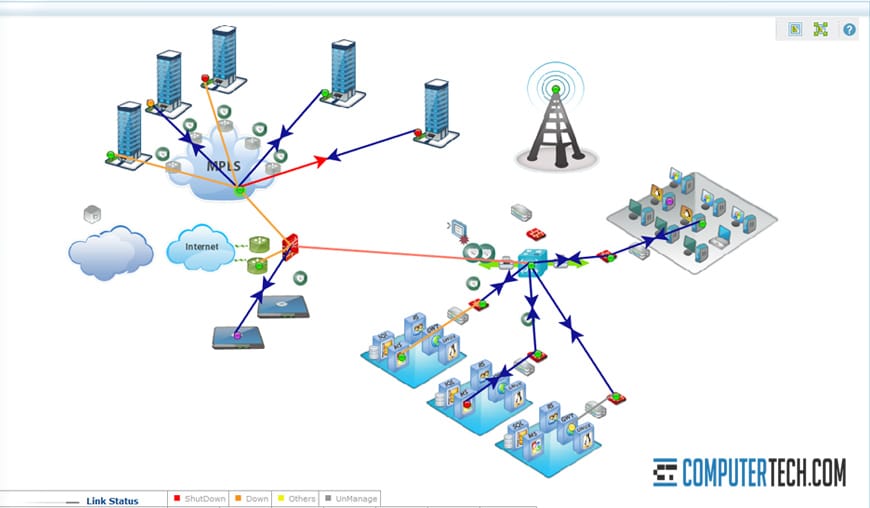
You need to know two things: where you are, and where you’re going.
Where you are: what is your current system? Are you cloud-based, on-premises, or a hybrid? Are you using out of the box solutions or custom software? Do your systems need constant low-level support or are your users generally tech-savvy enough that they don’t need tickets for general tasks? Is your maintenance largely automatic, or does it need babysitting? Is your system generally localized to one office or area, or do you need support for multiple regions and offices?
Where you’re going: Are you planning to grow into a system that scales along with you, or are you looking to transition to a different platform? How do you intend to expand and grow your IT alongside your brand?
You may also want to consider non-IT factors that can influence your choice of IT specialist. Is your company culture broad and inclusive? Is your team overall diverse? Would you benefit from hiring someone who can speak multiple languages? All of this helps you establish a picture of your environment you can use as a foundation for your job listings, interviews, and Q&A sessions with prospective hires.
2. Determine Your Scope of Needs
Once you have a picture of your environment as it stands, you will want to establish the scope of your needs.
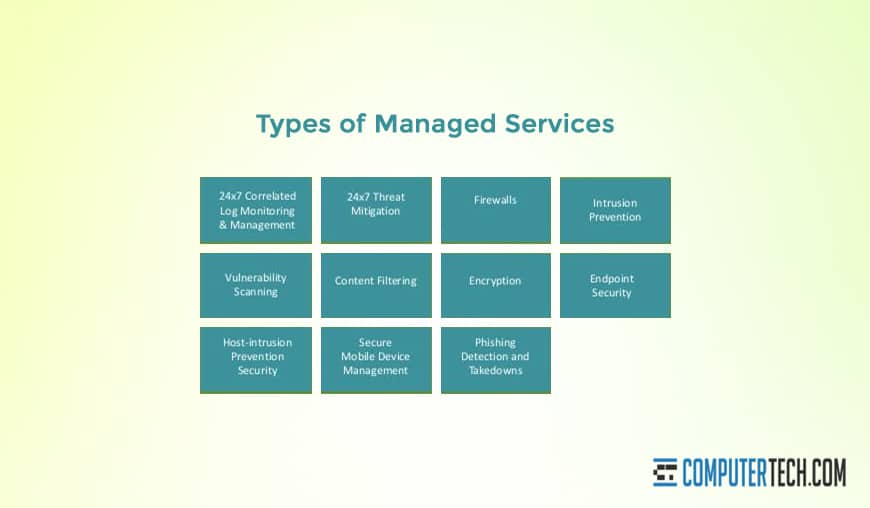
Here are a few examples of when you’d need managed services, as well as the expert you would require:
- If the bulk of your IT work is handling password resets, connection troubleshooting, and application errors, you may need a low-level support worker or a small team.
- If you tend to need more customized problem-solving and development of solutions via applets and applications, you may want to hire an IT specialist in front-end or full-stack development.
- If you need someone to deal primarily with VPNs, networking between offices, and interactions between on-prem and cloud providers, you might be looking to hire a network administrator or a cloud service specialist.
- If you’re aiming to migrate from one platform to another and support the new platform you might want to hire a migration specialist or a specialist in your intended platform who can help you with the process.
- If you’re primarily concerned with external threats, such as DDoSing, viruses, phishing, and other security concerns, you might want to hire a security specialist and/or an external penetration testing team.
- If you have an existing team and need some overall leadership that can guide the team in a cohesive direction, while growing the overall department efficiency and success rate, you may want to hire a manager or director of IT.
Understanding your overall goals with your IT department will help you understand the kinds of places you’ll want to post job listings, the level of compensation you should be offering, the certifications and training you want to look for, and other factors. It helps you hire the right person for the right job.
A perfectly viable candidate for one of the above categories might not work out if you’re actually in need of a different kind of IT specialist. A developer might not make a good security architect, and a security specialist might not do well in a support role.
3. Decide Between a Contractor, MSP, or Employee
A remote IT specialist can fall into three general categories.
First is the employee. An employee works for your company directly. You pay them, you handle their benefits, and they report to your managers and your directors. They typically only have responsibilities relating to your company, rather than working on multiple contracts or projects at any given time. Employees learn your systems from the inside and out, and can grow familiar with the quirks of your systems to better support them.
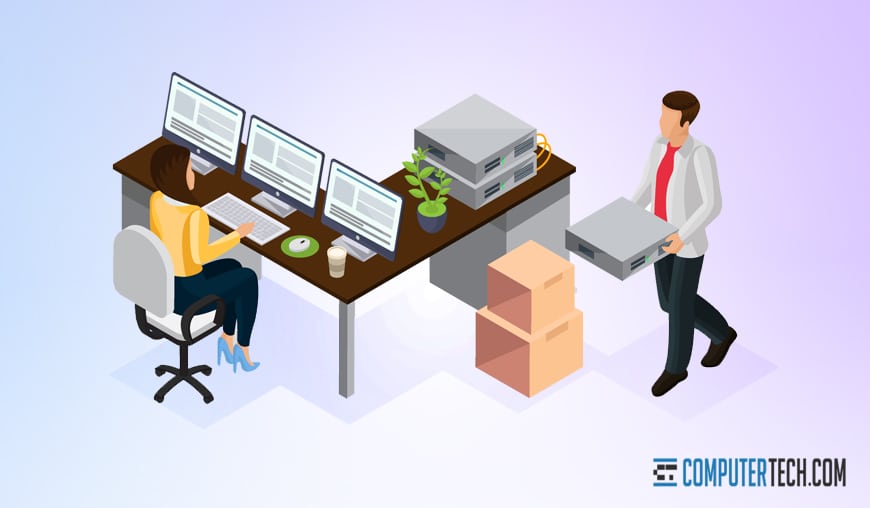
Remote employees in particular can be a beneficial hire. For IT, many roles can be Work From Home with little downside, and that can be a benefit to both the company and the worker. A fully remote worker can work from anywhere, which means you can hire from anywhere and don’t need to worry about relocation.
The second option is the contractor. Contractors tend to be freelancers who work on a contract basis. You generally don’t need to worry about their benefits, and the contract is generally temporary for the duration of a project, such as server migrations.
Sometimes, rather than contracting an individual, you might contract a team. A small team operating as contractors might be managed by one individual outside of your company, or they might all report to your director. Different combinations of contractors and employees can make (or break) different kinds of teams, so it’s important to determine what level of responsibility you want your hire to take.
Contractors can be cheaper than employees, and are often short-term hires, but not always. Contractors also typically handle multiple contracts at once, for their redundancy and job security, so they might not develop as much familiarity with the quirks of your systems.
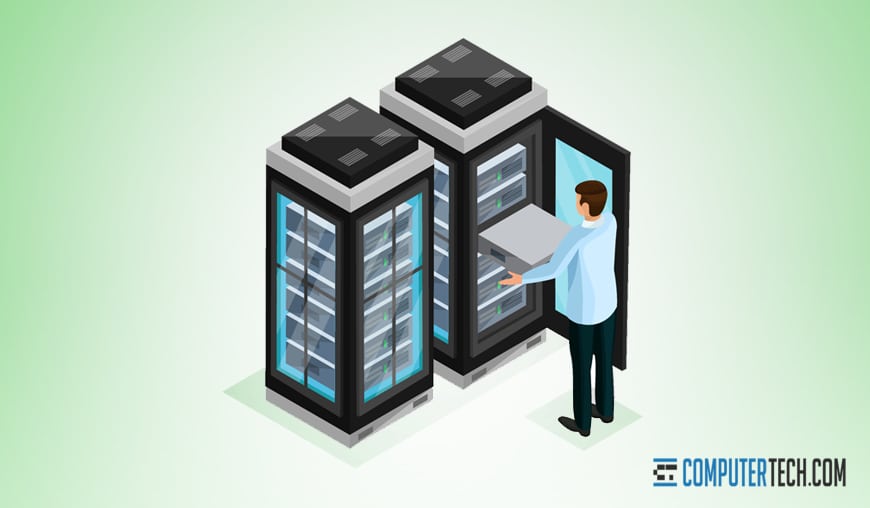
The third option is to contract with a Managed Services Provider. An MSP is a company that handles your IT needs for you, and either works in conjunction with your employees or handles all of the work themselves. They tend to be larger teams or businesses, and while they handle multiple contracts, the individuals working with you may be dedicated to your business.
MSPs can generally provide a larger team that already works together faster than you can hire a dedicated team. They generally have a broader base of knowledge and can work with your systems easily. The downside is that some MSPs are not very good, can be overpriced, or don’t give you the attention you need. You should always speak with the MSP first to determine if they’re capable of managing your IT needs, and to get a feel for their customer service and knowledge.
Picking the right kind of team and contract for your IT specialist is among the last major decisions you need to make prior to actively pursuing hiring. The process for picking up a remote contractor, a remote employee, or an MSP will differ.
4. Establish an IT Budget
If you don’t already have an IT department, or if it has been operating as part of another overall budget, you should consider defining your IT operating budget and expenses.

Remember that there’s more to an IT budget than just the services you pay for and the salary of the employees you hire. Consider:
- The cost of benefits for your IT specialist.
- The cost of ongoing training to stay ahead of the curve.
- The cost of an initial investment in hardware for new employees.
- The cost of upgrading and replacing the hardware on a rolling basis.
- Flexibility to handle disasters or faulty equipment.
- Networking devices, servers, security appliances, and other apparatus costs.
- Network security software, firewalls, and security training costs.
- The cost of ongoing cloud services and infrastructure, warranties, patch services, and usage.
- The costs of a project manager, director, or another organizational leader.
- The cost of licensing software and services outside of typical cloud platforms.
This can be daunting at first, as the numbers add up. Remember, though, to factor in comparisons with the alternatives. Paying for a good IT infrastructure and good employees to manage it is expensive, but not having those things isn’t free. Inefficiencies, insufficient infrastructure, poor tools, poor quality employees; all of this actively costs your business in terms of quality of service, reputation, growth, and time invested by your managers.
For example, the cost of hiring a support specialist might be high at first, but when you factor in the value of the time of your IT managers who would otherwise be doing the work, and the value of the high-level work they would otherwise be doing, you realize how valuable having that extra employee is. This goes doubly for if your C-levels or upper management are doing lower-level tasks; every hour where your IT director is performing password resets is an hour they aren’t spending on guiding the overall direction of your IT efforts.
5. Look for Remote Work Traits
Hiring a remote IT specialist requires a specific kind of worker. Unfortunately, not all high-quality IT workers are cut out to be remote workers. Working remote requires time management skills, the ability to self-motivate, and more. Here are some things you should look for.
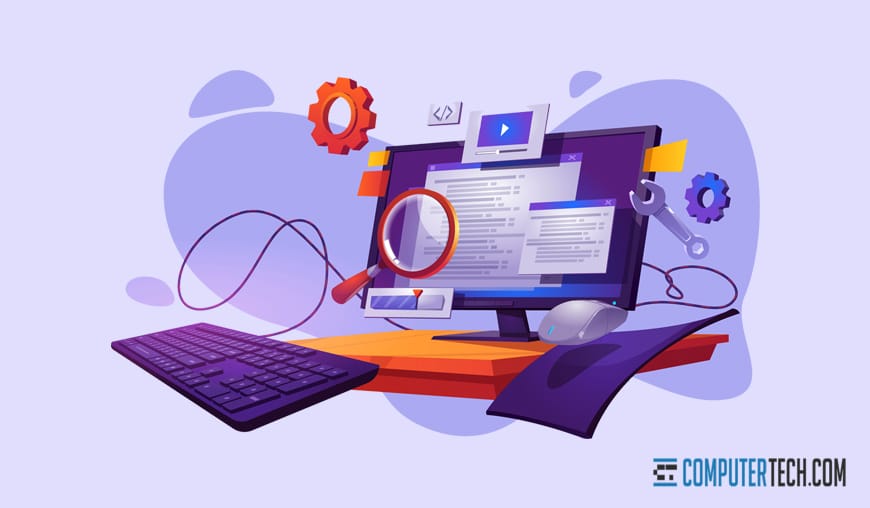
Ask for them in your job listings, test for them in skills tests, look for them in interviews, and rely on them in the specialists you hire.
- Communication and collaboration skills. A remote worker often feels like they are on an island, isolated and working on tasks alone or with little guidance. You want to find IT specialists who know how to collaborate and communicate across various channels, whether it’s with customers, employees, other IT teams, or your management team.
- Organizational and self-motivational skills. Remote workers don’t always have the traditional 9-5 structure to keep them on track. They don’t always have a dedicated home office where they can immerse themselves in a task. They may have household distractions like family. Remote work is hard, so you need to find someone with very good self-motivational skills. They need to be able to complete their tasks effectively and within deadlines.
- Time management abilities. Effective time management can be difficult, but it’s crucial to handling IT tasks on a day to day basis while still working towards overall goals. To a certain extent, your IT director will be responsible for some of this with their guidance and ability to break tasks down into individual goals, but the employee needs to be able to handle their end of the relationship.
Hiring a remote IT specialist is easier now than ever, especially as more and more IT workers are getting their work from home experience due to the pandemic. Self-selection is an important filter. Meanwhile, you can set up a robust job description, a series of skills tests, and possibly even a paid project to help assess prospective remote IT workers you want to hire. As long as you keep solid awareness of your current setup, your needs and desires, your goals, and your team, you should be able to hire a successful employee with relatively little friction.
About The Author
Herman
Herman is the lead team member here at Computertech.com. He’s been in IT for over 20 years and has expertise in our various IT Services including Microsoft Azure, Microsoft 365, Microsoft Teams and even Computer Security.
No related posts.
IT Support | IT Services | IT Consultant | Computer Support
Speak to a Human (856) 347-2282
- Home
- About Us
- Services
- IT Support
- Managed IT Services
- IT Consulting and Strategy
- IT Security Services
- IT Infrastructure Services and Networking
- Help Desk and Onsite Support
- Communication and Collaboration
- Specialist IT Services
- Data Backup and Disaster Recovery
- Cloud Computing
- Optimizing Network Consulting Services
- Remote Monitoring and IT Management
- Business Computer Services and Consulting
- Blog
- Contact Us
Navigation- Home
- About Us
- » About Computer Tech
- » What To Expect
- Services
- » IT Support
- » Managed IT Services
- » IT Consulting and Strategy
- » IT Security Services
- » IT Infrastructure Services and Networking
- » Help Desk and Onsite Support
- » Communication and Collaboration
- » Specialist IT Services
- » Data Backup and Disaster Recovery
- » Cloud Computing
- » Optimizing Network Consulting Services
- » Remote Monitoring and IT Management
- » Business Computer Services and Consulting
- Blog
- Contact Us
5 Helpful Tips Before You Hire a Remote IT Specialist
In need of IT Services or IT Support? Call us today at (856) 347-2282
About Us
Computer Tech is an IT Consultant \ Computer Consultant firm providing Computer Support, IT Support and IT Services in South Jersey, IT Support North Jersey, IT Services Delaware, IT Services New Jersey, Philadelphia Pennsylvania.
(856) 347-2282Get started:
Managed IT Services
Nationwide IT Support
Managed IT Support New Jersey- Pros and Cons of Outsourced SOC (Security Operations)
- How to Find and Eliminate Wi-Fi Interference in the Office
- 7 Tips to Wire Up an Office to Maximize Wi-Fi Speed
- Can You Still Recover Hard Drive Data if It’s Water Damaged?
- How New Technology Has Changed the Modern Workplace
- The Pros and Cons of Outsourcing Your IT Department
- Custom Gaming Installations for New Jersey Businesses
- Computer Installation in New Jersey – How Does It Work?
- How to Hire an IT Team to Build an Office Network
- The Benefits and Future of Remote IT Support for Businesses
Newsletter
Computer Tech, LLC.
105 Market Pl Suite 1, Glassboro, NJ 08028
(856) 347-2282
© Copyright 2025 HighTech Business Solutions. All Rights Reserved.



